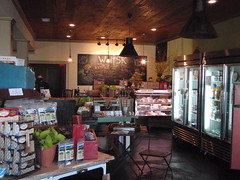In memory of Armistice Day, the eleventh hour of the eleventh day of the
eleventh month, when World War I ended,
let’s help the military get us off of oil
and to deal with climate change so fewer people will die in wars.
John M. Broder wrote for NYTimes 9 November 2012,
Climate Change Report Outlines Perils for U.S. Military,
Climate change is accelerating, and it will place unparalleled strains on
 American military and intelligence agencies in coming years
by causing ever more disruptive events around the globe,
the nation’s top scientific research group said in a
report
issued Friday.
American military and intelligence agencies in coming years
by causing ever more disruptive events around the globe,
the nation’s top scientific research group said in a
report
issued Friday.
The group, the National
Research Council, says in a study commissioned by the
C.I.A. and other intelligence agencies that
clusters of apparently unrelated events exacerbated by a warming climate
will create more frequent but unpredictable crises in water supplies,
food markets, energy supply chains and public health systems.
 Hurricane Sandy provided a foretaste
of what can be expected more often in the near future, the report’s
lead author, John D. Steinbruner, said in an interview.
Hurricane Sandy provided a foretaste
of what can be expected more often in the near future, the report’s
lead author, John D. Steinbruner, said in an interview.
“This is the sort of thing we were talking about,” said
Mr. Steinbruner, a longtime authority on national security. “You
can debate the specific contribution of global warming to that storm. But
we’re saying climate extremes are going to be more frequent, and
this was an example of what they could mean. We’re also saying it
could get a whole lot worse than that.”
…
Climate-driven crises could lead to internal instability or international
conflict and might force the United States to provide humanitarian
assistance or, in some cases, military force to protect vital energy,
economic or other interests, the study said.
 This is in addition to the even more obvious
connection between war and U.S. dependence on foreign oil
which the veterans in Operation Free want to fix
by helping us shift to clean renewable energy.
This is in addition to the even more obvious
connection between war and U.S. dependence on foreign oil
which the veterans in Operation Free want to fix
by helping us shift to clean renewable energy.
“In Iraq… the lines would stretch up to ten miles long under
the hot sun, under constant risk of attack by extremists. I realized
then just how vulnerable it makes any country to be dependent on
oil, especially the United States, which uses nearly a quarter of
the world’s supply.”
We also heard last year from
Col. Dan Nolan (U.S. Army ret.) that the Marines in Afghanistan
realized
Continue reading →
 The new Commission with the new portrait got to hear about money and
transparency right away.
And a surprise alcoholic vote caused by their lack of transparency.
The new Commission with the new portrait got to hear about money and
transparency right away.
And a surprise alcoholic vote caused by their lack of transparency.









 It’s an opportunity for those of us who are not currently
searching for our next meal to help those who need jobs,
and thereby to help ourselves, so they don’t turn to crime.
Like a burned-over longleaf pine, we can come back from this recession
greener than ever, if we choose wisely.
It’s an opportunity for those of us who are not currently
searching for our next meal to help those who need jobs,
and thereby to help ourselves, so they don’t turn to crime.
Like a burned-over longleaf pine, we can come back from this recession
greener than ever, if we choose wisely.






